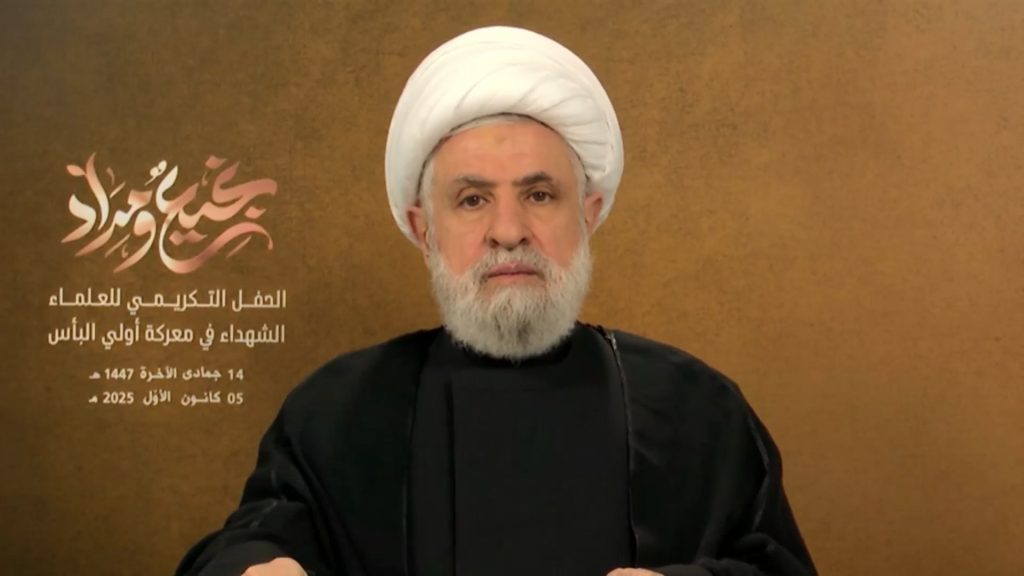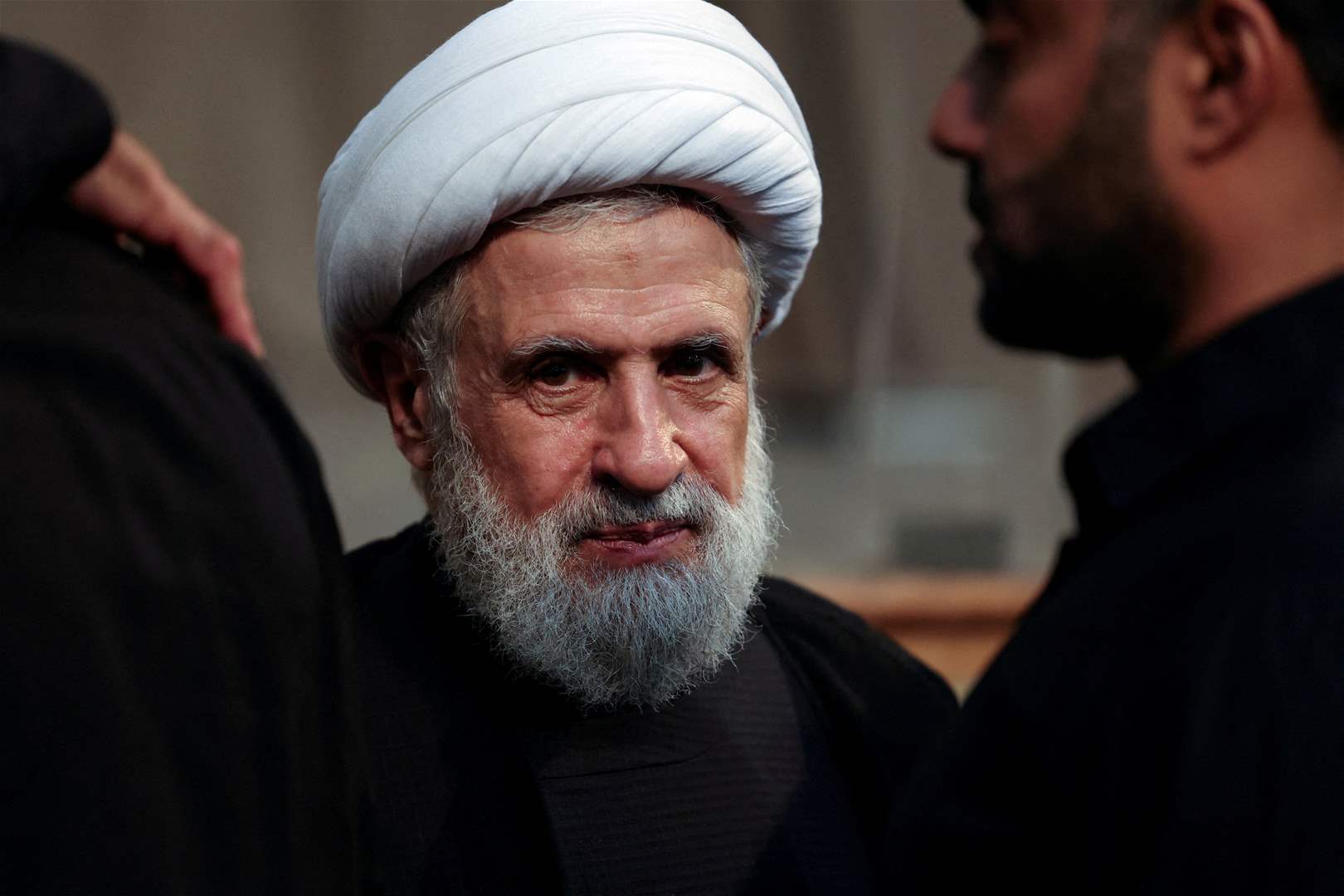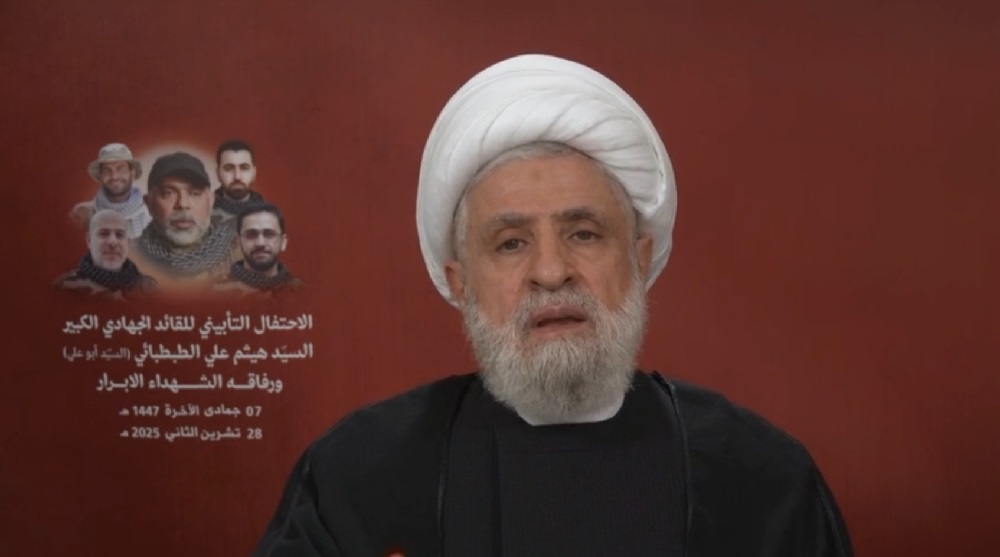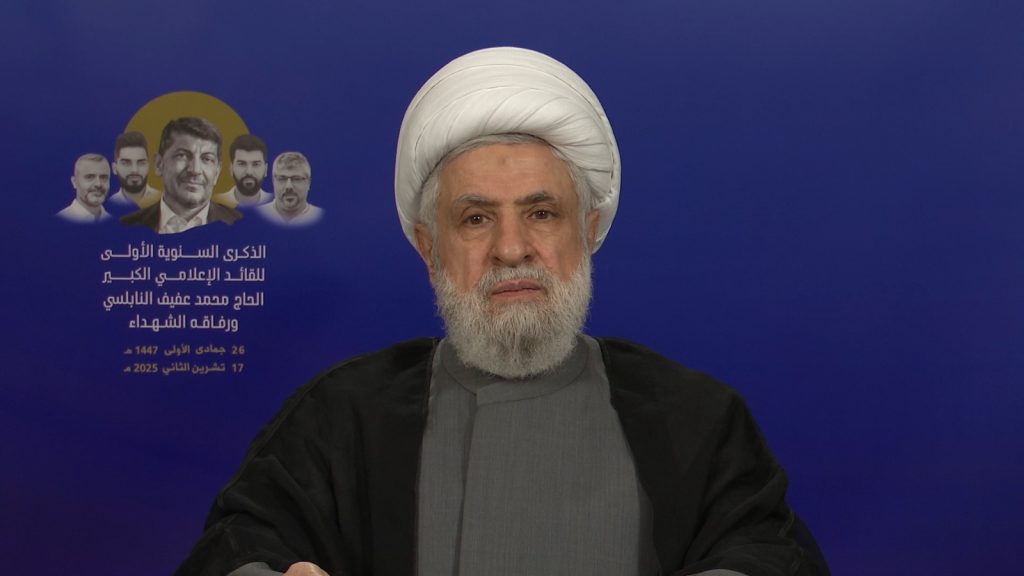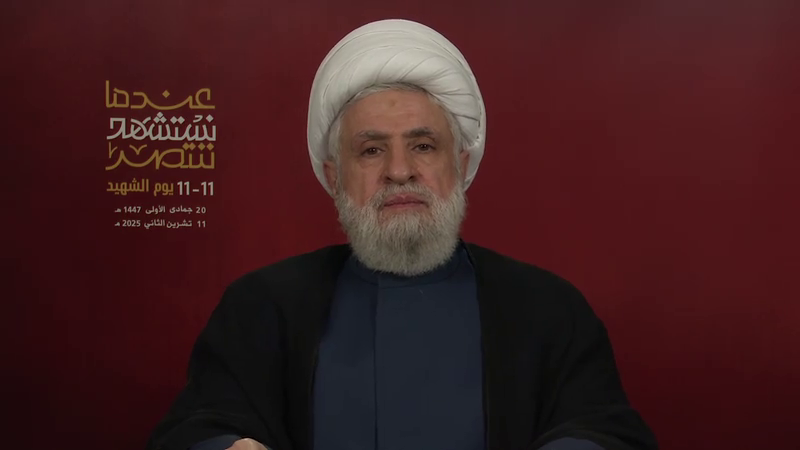Resistance and Public Work
It could be said that the early 1990s witnessed Hizbullah's broad openness to politicians and public figures as well as other factions. Such a delay between foundation and the launch of political interactions was due to the following main reasons:
Resistance and Public Work
It could be said that the early 1990s witnessed Hizbullah's broad openness to politicians and public figures as well as other factions. Such a delay between foundation and the launch of political interactions was due to the following main reasons:
1. The foundation period had concentrated on military buildup as a main priority given the primary objective of resisting occupation.
2. Secrecy was a main characteristic of the foundation period. Resistance work requires underground preparation as part of the crucial security needed to ensure the persistence of confrontations, especially in light of the initial scarcity of individuals and resources. Given that Lebanese airspace was open to the enemy, while collaborators were spread out and ready to execute assassinations and bomb targets, secrecy was vital to avoid any expected losses that could potentially be inflicted by the enemy on the fighting brigades. Political work requires pronouncement, which was not appropriate at the time.
3. Since 1975, the Lebanese terrain had been the domain of complicated circumstances generated by a civil war that hauled the majority of powers into a harsh internal conflict at both the military and political levels. Interest was thus directed internally. This was coupled with the expulsion of the Palestinian Liberation Organization from Lebanon. The power imbalance that ensued included the launch of a number of secondary military conflicts stemming from the Lebanese war; Israel's invasion of Lebanon; and the halt of any interconnection between East and West Beirut due to the setup of two practically independent states, a condition which endured until the dismissal of General Aoun in the wake of the Taif Accord.
4. Initial concern for the preservation of the resistance required unequivocal attention, one that postponed involvement in the political scene. Political work could require certain relinquishments and considerations that could have consequences on the undertaking of resistance activity, a fact that politicizes the resistance movement within a sphere of interactions and demands. When the resistance came of age, proved itself and its weight of presence, such concerns were diluted. Focus was then directed towards the formulation of a definition for Hizbullah, one that is indisputably clear and that determined, once and for all, the relationship between the politician and the jihad combatant: >Hizbullah is a jihad movement having as a primary mission to undertake jihad against the Israeli occupier'; and >intelligent and wise political effort could and should be a pivotal support for such a jihad movement.'
5. The Party's house had to first be put in order. Issues of concern included stabilizing its identity and individuality; clarifying its theoretical and practical objectives; resolving some internal discussions over a number of matters such as the Party's thoughts on the Lebanese government, especially after the Taif Accord; defining the general policy approach towards relationships with the various political powers; and, finally, participation in parliamentary elections.
6. It is no secret that this nascent party absorbed the experiences of its early members, benefiting greatly throughout its foundation year. Appraisals were undertaken on various milestones, the outcome of which was to resolve the Party's stance, verbal communication approach and practical measures. The Party went through a growth and development phase whereby its plans and methods crystallized, and its position on various issues was more clearly determined.
7. At the level of its relationship with the populace, the Party's distinctive move forward was realized with the decision to take part in parliamentary elections. In the years prior to this development, young men had primarily been concerned with military activity, and were somewhat at a distance from direct and widespread contact with societal segments in cities and villages. The decision to participate in elections created a set of new responsibilities and relationships. Plans and general policies were drawn, individuals were charged with seeing to the achievement of objectives, and focused guidance of all brothers was aimed at fostering stronger ties with the populace, understanding civilians' needs and pains and cooperating with the inhabitants of various towns and villages to resolve their concerns.
Another distinctive step in tandem with the above-described decision was the experience of working with the ruling body of government and parliamentarians, raising people's concerns and internal issues to the public level; following up on proposed legislation; and executing the representation function in Parliament in accordance with the underlying reasons for such participation. The nature of the relationship with the ruling body and its basic pillars crystallized as an opposition voice that was preceded by abstentions during the first Hariri government.
Relationships with the various political powers and factions had in fact started before then, but spread out considerably and increased in importance along with the Party's stance in political life.
Relationship with National Figures and Power Forces
The Party's approach to political work with national figures and societal powers was based on a practical methodology expressed as tolerance preferred to hostility; cooperation preferred to contempt; the call to God preferred to blasphemy; unity of powers preferred to dispersion; and confronting occupation as more important than internal differences.
This approach accommodated all divisions under the realm of Hizbullah's political interaction except those harboring direct relations with Israel. Ideology was never a reason for conflict; rather, it was the role and nature of resistance activity. Political reality calls for concentrated effort in order to group resources for defiance of the occupiers which, if neglected in favor of resolving strategic or ideological conflicts, would result in many a discord, hauling everyone into a discussion of inflexible fundamentals and drawing all into debates on secondary issues and internal contests instead of concentration on the main battle. Everyone would lose.
By assigning the priority to resistance for the sake of liberation, and thus postponing debates about the future and strategies in anticipation of the fruits of confrontation with the Israeli enemy, all concerned would have a chance to participate in the struggle against the Zionist project, each from their respective positions and within the boundaries of their convictions and capabilities.
Many factions, movements and organizations formed in our Arab region have only reaped loss when they diverted attention towards minor details, mobilizing their resources towards inconsequential issues and losing track of the fundamental causes. No objectives were achieved, and these entities are to date incapable of participation in issues of relevance to self-determination and their own future.
Based on this viewpoint of relationships with other groups, many important conferences, committees, and inter-party meetings were recorded. It was Hizbullah that called for the convention of all Lebanese factions which took place on August 18, 1997 at Le Bristol Hotel, fifteen years after the collapse of the National Movement. The majority of partisans were thereby grouped together, be they right-wing or leftist; religious or secular; Muslims or Christians; or any of the many other groups which had never been part of the National Movement. The objective was to >revive the political movement in Lebanon, develop it, and rally support for the resistance activity taking place in South Lebanon in defiance of the Zionist plan. Twenty-seven political parties, represented by the general secretariat or presidents, edited the Bristol manuscript, and this inter-party conference still takes place today, issuing declarations on ongoing developments, supporting the Resistance, and undertaking joint public activities.
Hizbullah also actively participated in the Arab National Conference and the Islamic National Conference, bringing closer the views of Arab nationalists and Islamists in preparation for facing those prevailing political necessities s at the pinnacle of which is opposing the Zionist plan.
Hizbullah did not spare any effort at conducting bilateral meetings with spiritual leaderships, figures of power and factions in the country, whether these were simply aimed at continuously touching base or revolved around particular discussions intended to converge viewpoints, or even to decide on modes of cooperation between parties.
Social Services
Hizbullah paid particular attention to social work. Not one aspect of aiding the poor was neglected as the Party worked towards achieving joint social responsibility, answering to urgent needs and introducing beneficial programs. Such work was simply considered a Party duty, and concentrated effort towards raising funds and making available social service resources served towards achieving these goals. The Party worked to the best of its capabilities, cooperating with official public institutions to respond to societal needs.
Along these lines, Hizbullah founded the Jihad al-Binaa Association (for construction and development) less than three years after the Party's creation. The institution's first task was to restore buildings damaged by the Bir al-Abed bombing of 1985. Next, it undertook in 1987 to restore damage caused by torrential streams in the northern Bekaa, working in the same year on refurbishing homes in the southern Lebanese villages of Kafra and Yater, which had been targets of Israeli aggression. Every home damaged by Israeli raids since 1991 was restored by this institution, and this is true of other homes across Lebanese regions, especially in the South and Western Bekaa, bringing the total of refurbished buildings to 17,212 homes, shops and public utility structures.
Between 1988 and 1991, the Party worked to remove all waste accumulation in Beirut's southern suburbs, where more than half a million residents live. Waste collection running at an average of 65 tons per day solved the problem of government neglect of that area and contributed to environmental preservation. No financial remuneration was requested of residents, and the service continued to be provided free of charge as part of the Party's humanitarian efforts.
With 110 water tanks distributed across Beirut's southern suburbs, the Party makes drinking water available to areas not endowed with such a public service. Three hundred thousand litres of water, available daily via mobile cisterns, reach 15,000 families. This service has been running free of charge as of March 1990 until the present day.
Hizbullah also concerned itself with agricultural activities, including the observation of annual agricultural cycles, distribution of saplings, field visits, provision of agricultural credit, distribution of tractors, fertilization, herbicide spraying, transfer of knowledge for honey production and other cultivation, and setup of guidance and piloting centers. Attention was also directed at vocational training, providing villages with water, electricity and sewage utilities, working towards the creation of health centers and infirmaries, construction and restoration of educational institutions, cultural clubs, mosques and homes for needy families or martyrs' relations.
Focusing on health, the Party founded the Islamic Health Organization (IHO) managing nine health centers, sixteen fixed and three mobile infirmaries catering to fifty-one villages. These centers have treated 111,077 cases since 2001, provided free medication and free health services to eighty-eight schools, and continue to provide regular vaccination rounds, in addition to launching promotions against smoking and disease-prevention awareness campaigns. The IHO has also been concerned with civil defense, executed through the ten centers created for this purpose.
The Party was attentive to the educational requirements of the needy, subsidizing these through >educational mobilization', which has provided educational support to 16,679 students (part of which was in the form of books and stationery provided to 2,300 students), in addition to assisting with the school fees of some 6,355 students. Scholarships or grants ranging in value from 25 percent to 100 percent of school fees were awarded to 8,024 students. Further, the Paramount Martyr stationery fairs were launched, featuring discounted prices that facilitate access to learning for the population.
A special setup, the Institution for the Wounded, follows up on the physical state of the wounded and has taken care of 3,150 injured individuals B of whom 2,307 were Resistance fighters, the balance being civilians injured during the war or as a result of stepping on land mines planted in the south of Lebanon. Care involves provision of monthly allowances, medical treatment, and rehabilitation for the handicapped in preparation for their re-integration into society. The Institution has created four treatment, rehabilitation and recreational centers distributed between Beirut, South Lebanon and the Bekaa.
Alongside the Party, the Philanthropic and Social Martyrs' Institution works independently at the financial, operational and managerial levels. It is concerned with taking care of 1,284 families of martyrs who had given their lives in the resistance. It attends to 684 spouses, 1,215 children and 1,596 parents. A program of joint social responsibility ensures the availability of housing, education, clothing, health services and various other social needs, in addition to active participation in job placement once children complete their education. The Institution also monitored and assisted, at one time, the families of 276 war prisoners. It founded the Greatest Prophet Hospital as well as the al-Shahed Educational Forum, alongside many other services.
Imdad B The Islamic Philanthropic Committee is another financially, managerially and operationally independent institution. It fills an important gap at the social level through its provision of aid to orphans, the destitute, the handicapped and the displaced, as well as to elderly persons. In 1998, the Committee followed up on 4,160 families, of which 3,519 (encompassing 9,722 individuals and 3,529 orphans) were assisted on a monthly basis. Facilities provided were in the form of financial support in marriage, residence, food and education. It also supervised four free schools and three centers for incapacitated children, alongside other activities.
The above-mentioned is only part of what is being provided in the sphere of joint social responsibility or assisting the needy and incapable for sustenance of self and family. Added to this is the work undertaken by the Social Unit of the Party, which involves the provision of support and services through international, local and official organizations, as well as through the allocation of Islamic funds (distributed according to Shari>a principles). Further, the work of Party parliamentarians is also aimed at provision of service and support to individuals. Many other Islamic social institutions have been set up independently to fill an important gap in terms of reaching the greatest possible number of orphans and deprived individuals. Were it not for such concentrated social work, large-scale social crises affecting tens of thousands of people would have come to pass. This exposes the extent of government negligence and deficiency in the fulfillment of many important and fundamental duties.
Such social work, which has evolved alongside resistance activity, served to relieve the resistance of a considerable burden by assisting the populace in their endurance of Israeli aggression and of the remnants of occupation. It also fostered a humane and social environment of joint responsibility, thus shielding the resistance from social catastrophes B those from which the government simply alienated itself.
Westerners have suspected that Hizbullah's social work was essentially aimed at recruitment, even where this was a natural consequence of the Party's social activities. They have also suspected that people gathered around Hizbullah mainly in order to benefit from these services. While such services do have a considerable effect on the populace, the essence of participation ultimately resides in belief in the overall path. Social work serves to enrich supporters' confidence in the viability of the Party's cause and course, as itcooperates, collaborates and joins forces to remain strong and tenacious in its political and resistance roles.
[1]. As stated in Hizbullah's declaration of August 17, 1997.
[2]. The bombing aimed to assassinate Ayatullah al-Sayyed Muhammad Hussein Fadlallah.
[3]. This includes homes damaged as a result of the July 1993 Israeli aggression, totaling 4,873, as well as those impaired by the April 1996 Israeli bombardment of Lebanon, totaling 6,714. The institution always mobilized its home restoration activities the day after any Israeli bombardment, and covered all Lebanese regions. See www.jihadbinaa.org for official figures.
[4]. See the IHO's media announcement of 2002. ???WHICH MONTH
[5]. Figures are drawn from a press conference held by Central Education Administrator Dr Bilal Naim on November 18, 1999.
[6]. Information on this institution is available in brochures titled >The Institution for the Wounded'.
[7]. See the publication issued by the Institution under the title >Continuous Giving To Preserve Custody'.
[8]. See the publication issued by the Committee detailing its activities to the year 1998. The Committee's scope of work has developed since then. ???TITLE OF PUBLICATION


